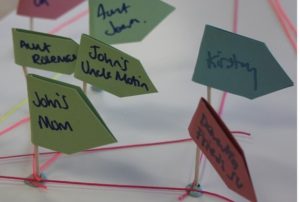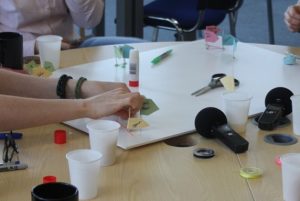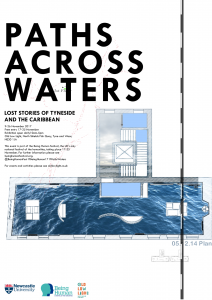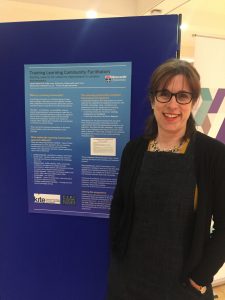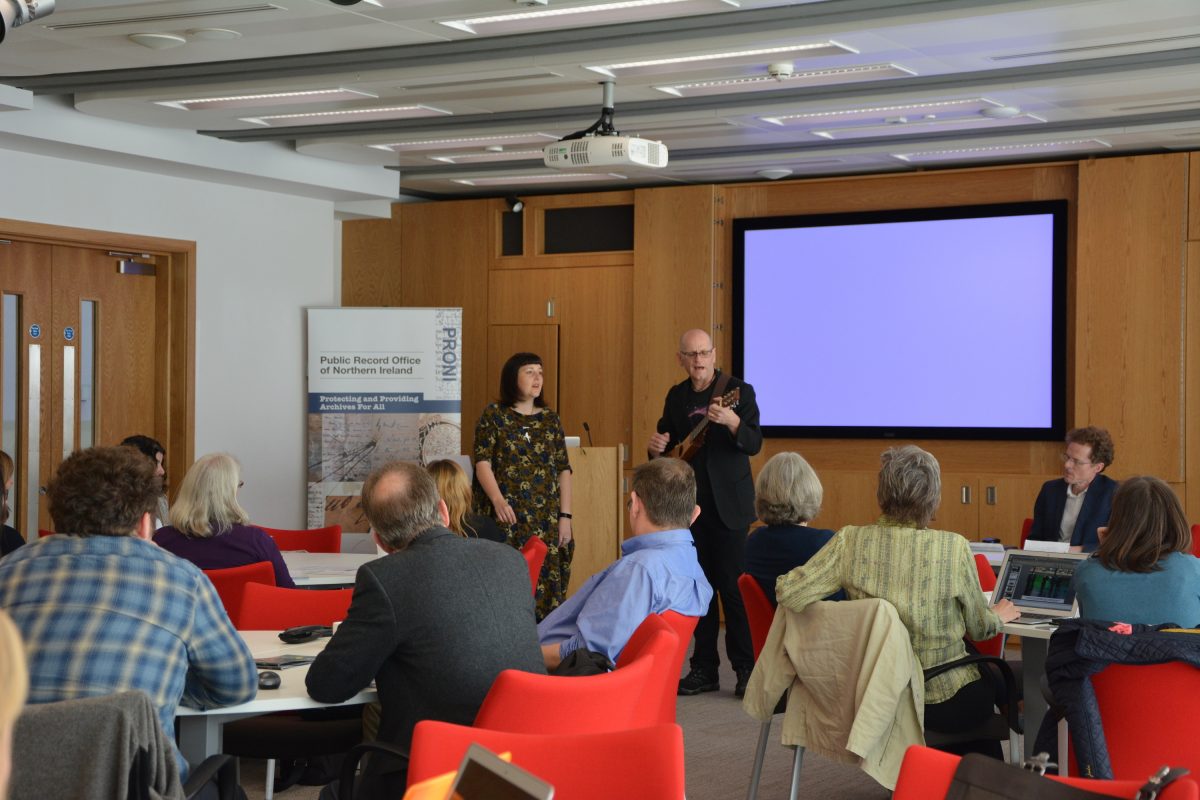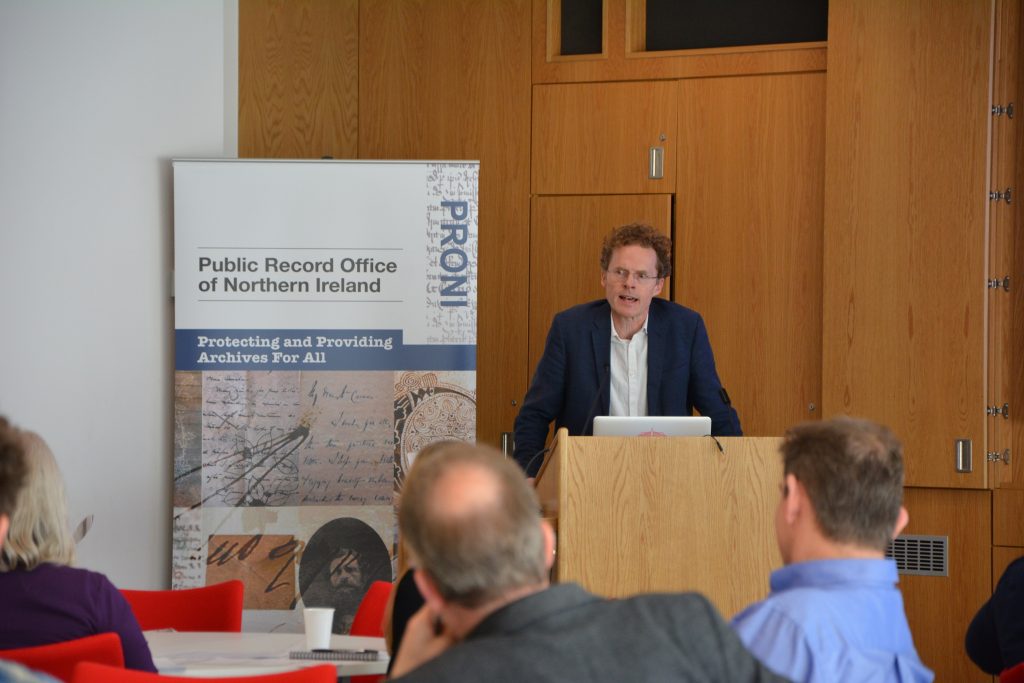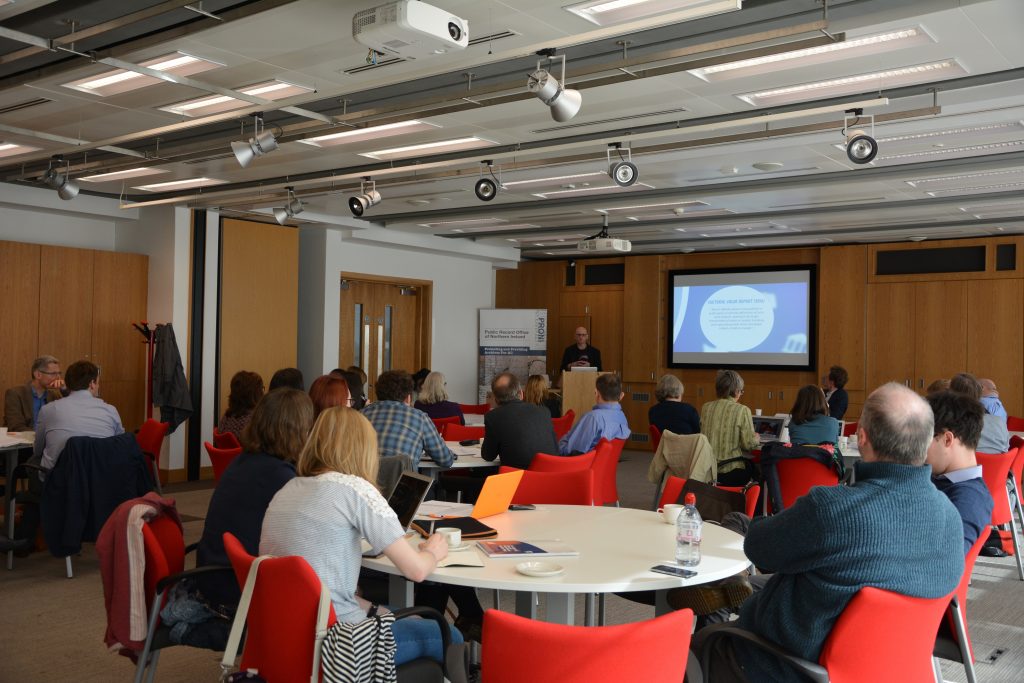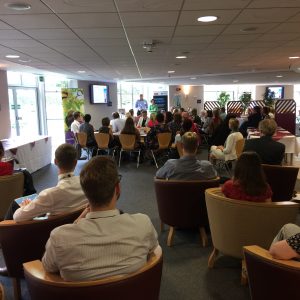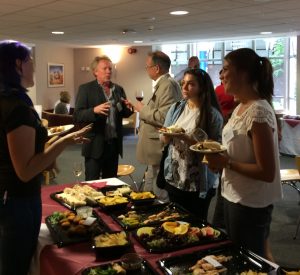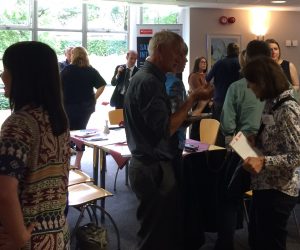Dr Tony Young tells us about how a new app ‘Ticket to Talk’ developed through funding from the ESRC IAA, is helping young carers communicate to people living with dementia
Earlier research I’d done found that young people – especially teenagers with care responsibilities for older relatives – would benefit greatly from access to resources, information and tools that enable them to increase their confidence and skills for communicating with people living with dementia. It also found that the content and resources available in DemTalk, an existing advice package, provides a useful starting point however it also identified a number of barriers to using the resource for this age group for example that the primary mode of accessing the internet for teenage participants was via smartphones. The advice offered did not always map fully onto younger people’s experiences of, and needs related to, dementia care and so Ticket to Talk was born.
The team worked with a local charity Youth Focus North East (YFNE) to co-design and co-develop a new app that enables young people – especially young carers – to access the resources and information in DemTalk, contributing their own perspectives and experiences to the content and to privately share their experiences with other DemTalk users. During this process we also engaged other groups to get their feedback too. We have spoken to carer services from Northumberland Council to publicise the work done so far. We also talked at a North East Dementia Alliance event in order to raise awareness of the work. Ideas informing DemTalk in general, and the App in particular also featured in the recent Newcastle University Massive Open Online Course ‘staying connected and living well with dementia’ where possible we want to generate conversations about dementia and help all those affected by it.
Ticket to Talk hopes to encourage conversation between younger people and grandparents, friends or people they care for who are experiencing dementia. The app is designed to help collect and curate digital media (”tickets”) to be used to prompt and stimulate talk, conversation and reminiscence between younger people and those they are close to with dementia.
After a tremendous amount of hard work from everyone involved we are delighted that the new app, available for Apple and Android platforms is now available for free. The underlying source code is also available, so it can be downloaded by as many people as possible. Starting conversations can be hard for anyone caring for those living with dementia, we hope this app is a way of making that process a bit easier.
Find out more about the app here and the latest work of Youth Focus North East here

